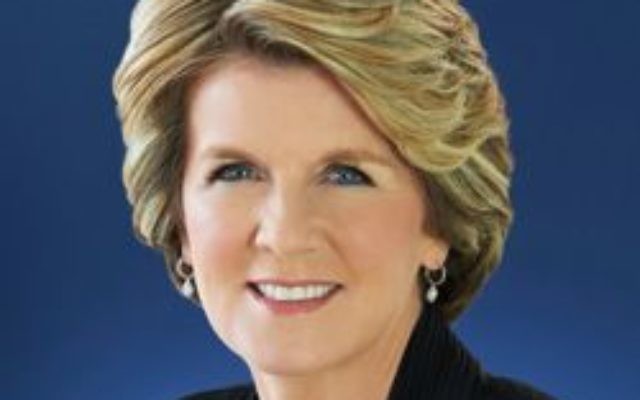Bishop concerned over homegrown jihadists
FOREIGN Minister Julie Bishop this week said she was “deeply concerned” over the domestic threat posed by Australian citizens fighting with Islamist groups in Syria, following reports that the Frenchman arrested in connection with last month’s fatal shooting at the Jewish Museum of Belgium spent over a year fighting with jihadists in the war-torn country.
FOREIGN Minister Julie Bishop this week said she was “deeply concerned” over the domestic threat posed by Australian citizens fighting with Islamist groups in Syria, following reports that the Frenchman arrested in connection with last month’s fatal shooting at the Jewish Museum of Belgium spent over a year fighting with jihadists in the war-torn country.
Mehdi Nemmouche was detained at a bus terminal in Marseille last Friday.
According to French authorities, the 29-year-old, who had already served a number of prison sentences in France, was carrying arms matching those used in the May 24 Brussels attack which claimed four lives.
He was also said to be in possession of a video in which a voice – believed to be his – claimed responsibility for the attack, and a sheet scrawled with the name of the Islamic State of Iraq and the Levant, an extremist Syrian group that has been linked to al-Qaeda.
French state prosecutor François Molins told a press conference Nemmouche had become a radical Islamist during his time in prison and had travelled to the Middle East shortly after his most recent release in December 2012. “He spent over a year in Syria, where he seems to have joined the ranks of combatant groups, jihadist terrorist groups,” Molins said.
The attack in Brussels came just a day after The AJN carried an article on a Middle East Media Research Institute report which identified a number of Australians fighting in the Middle East and involved in other jihadist activities. Meanwhile, a government source last year was quoted as saying around 200 people with Australian citizenship may be enemy combatants in Syria.
“I am deeply concerned that a growing number of Australians are travelling to the Levant region to support or participate in fighting in Syria,” Bishop told The AJN this week. “There is a danger that some of those who travel to Syria may return radicalised with capabilities acquired through fighting or training with extremist groups. The Australian government is monitoring closely the activities of Australian travelling to the region.”
The minister added, “I have cancelled the passports of a number of Australians who have travelled to the region. Australia has an autonomous sanctions regime in place in relation to Syria, which makes it illegal under Australian law to engage in fighting for either side; to fund, train or recruit someone to fight for either side; or to supply weapons to either side of this conflict.”
The sentiment was echoed by a spokeswoman for the Attorney-General’s Department, who told The AJN, “The government is concerned about any form of violent extremism, whatever the motivating ideology or beliefs,” adding, “Australia has well-developed counterterrorism arrangements and capabilities in place, which have in the past detected and disrupted actual terrorist planning.”
Stressing that “it is clear that the relevant government authorities are fully aware of this potential danger, and are doing their utmost to anticipate it and diminish the likelihood of terrorism being perpetrated by ideologically empowered, battle-hardened returnees from Syria,” executive director of the Australia/Israel & Jewish Affairs Council Colin Rubenstein said Nemmouche’s arrest “should certainly be a wake-up call for anyone who doubted the threat posed in this country by Australians who have fought or are fighting in Syria”.
Peter Wertheim, executive director of the Executive Council of Australian Jewry told The AJN: “The security implications of participants in the conflict in Syria returning to Australia are well understood. The security agencies have made it very clear to the public that they are aware of the problem and are doing all they can to detect and monitor potential terrorist threats from this source. It is a top priority.”
ZEDDY LAWRENCE
Foreign Minister Julie Bishop.


comments